SHARE THE DREAM
Shining a Light in a Divided World through Six Principles of MARTIN LUTHER KING JR.
BIBLE STUDY GUIDE | SIX SESSIONS
MATTHEW DANIELS AND CHRIS BROUSSARD
Confidential: Do not print or distribute in any form.
Share the Dream Bible Study Guide
© 2023 by Matthew Daniels and Chris
Broussard
Requests for information should be addressed to: HarperChristian Resources, 3900 Sparks Dr. SE, Grand Rapids, Michigan 49546
ISBN: 978-0-310-16402-9 (softcover)
ISBN: 978-0-310-16403-6 (e-book)
All Scripture quotations are taken from the Holy Bible, New International Version®, NIV®. Copyright © 1973, 1978, 1984, 2011 by Biblica, Inc.® Used by permission of Zondervan. All rights reserved worldwide. www.zondervan.com. The “NIV” and “New International Version” are trademarks registered in the United States Patent and Trademark Office by Biblica, Inc.™
Any internet addresses (websites, blogs, etc.) and telephone numbers in this study guide are offered as a resource. They are not intended in any way to be or imply an endorsement by HarperChristian Resources, nor does HarperChristian Resources vouch for the content of these sites and numbers for the life of this study guide.
All rights reserved. No portion of this book may be reproduced, stored in a retrieval system, or transmitted in any form or by any means—electronic, mechanical, photocopy, recording, scanning, or other—except for brief quotations in critical reviews or articles, without the prior written permission of the publisher.
HarperChristian Resources titles may be purchased in bulk for church, business, fundraising, or ministry use. For information, please e-mail ResourceSpecialist@ChurchSource.com.
First printing [date] / Printed in the United States of America
Confidential: Do not print or distribute in any form.
CONTENTS "I Have a Dream" XX How to Use This Guide XX SESSION 1: LOVE XX SESSION 2: CONSCIENCE XX SESSION 3: JUSTICE XX SESSION 4: FREEDOM .................................................................... XX SESSION 5: PERSEVERANCE XX SESSION 6: HOPE ............................................................................ XX Leader’s Guide XX About the Authors XX Endnotes ................................................................................................. XX Confidential: Do not print or distribute in any form.
Confidential: Do not print or distribute in any form.
I HAVE A DREAM ”

“
Confidential: Do not print or distribute in any form.
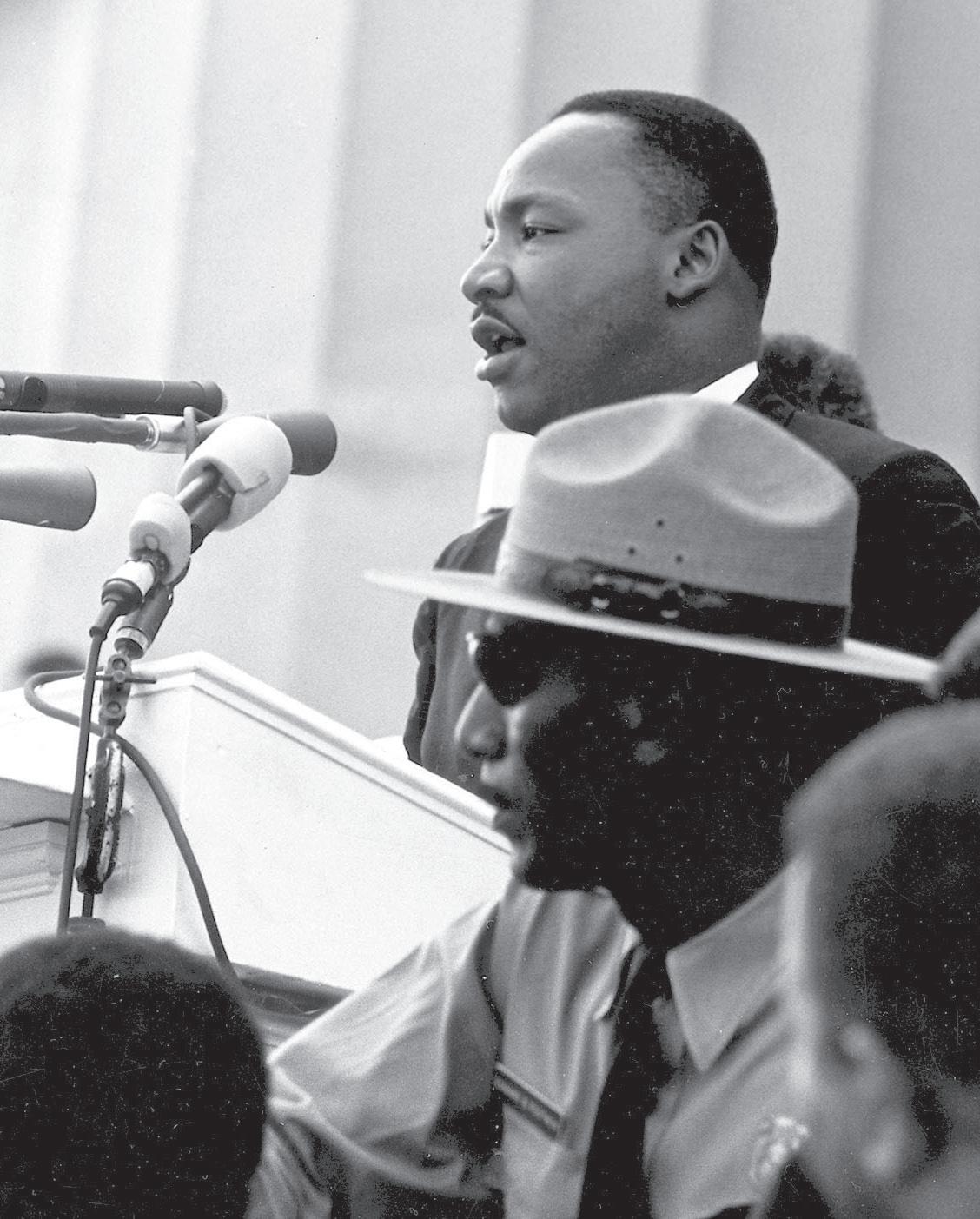

Confidential: Do not print or distribute in any form.
Let justice roll on like a river, righteousness like a neverfailing stream. Amos 5:24
“I HAVE A DREAM”
THE DATE WAS AUGUST 28, 1963. The place was Washington, DC. A crowd of more than 250,000 Civil Rights supporters had gathered outside the Lincoln Memorial, filling the area around the reflecting pool and out toward the Washington Monument, to take part in the March on Washington for Jobs and Freedom. The march was partly intended to demonstrate support for Civil Rights legislation proposed by President John F. Kennedy. The speakers that day had agreed to keep their speeches calm so as not to overly incite the crowd that had gathered.1
One of the speakers that day was Dr. Martin Luther King, Jr., a Baptist minister who had been thrust into the limelight as a result of his leadership in the Civil Rights Movement. Dr. King had designed his speech as a homage to Abraham Lincoln’s Gettysburg Address, but he departed from his prepared script when Mahalia Jackson, a gospel singer who was also performing that day, called out, “Tell them about the dream, Martin!” 2 What followed was the now famous “I Have a Dream” speech, in which Dr. King outlined his vision of freedom and equality in a land that still practiced racism and hatred. 3
As one historian noted, “With a single phrase, King joined Jefferson and Lincoln in the ranks of men who’ve shaped modern America.”4 Dr. King, and other courageous men and women of his day, were able to change history through the power of a dream rooted not only in human principles but also in God’s love for all humanity. In other words, there was a spiritual dimension to the early Civil Rights Movement. This becomes especially evident when you learn the spiritual backstory of what Dr. King and others were able to achieve.
Ambassador Andrew Young, one of Dr. King’s closest confidants in the Civil Rights Movement, stated they were only able to overcome the incredible violence, threats, and legal and political opposition that they faced on all sides “by the power of the Spirit.” He went on to explain, “We would be planning to go to Place A for a rally. But someone would have a dream the night before telling us to go to Place B. So, in obedience to the dream, we would go to Place B. And there would be a bomb at Place A that would have taken out the whole Civil Rights Movement in its infancy. When that happens to you . . . you learn to be led by the Spirit.”
vii Confidential: Do not print or distribute in any form.
In many ways, this sounds like a description of the early church. In spite of the violence and persecution they faced, “those who had been scattered preached the word wherever they went” (Acts 8:4). The first believers were led by the Spirit, and as a result, the church continued to grow day by day. Ultimately, Christianity transformed the Roman Empire itself.
Most of us today would agree that we need that same power to overcome the growing darkness and violence in our world. We need the Holy Spirit to guide us, work through us, and empower us to transform our communities, cities, and nations for Christ. We need to be active in partnering with the Spirit’s work to Share the Dream today.
Throughout Dr. King’s life—and in the last public speech he gave before he was assassinated—he used the parable of the Good Samaritan as an illustration of the love, mercy, and compassion of God being extended across the boundaries of race and culture. You might recall that Jesus told the parable in response to a religious teacher’s question, “Who is my neighbor?” (Luke 10:29). Many people, both in that time and still today, prefer to define neighbor as narrowly as possible. But Dr. King noted the following about Jesus’ response:
Jesus immediately pulled that question from mid-air, and placed it on a dangerous curve between Jerusalem and Jericho. And he talked about a certain man, who fell among thieves. You remember that a Levite and a priest passed by on the other side. They didn’t stop to help him. And finally a man of another race came by. He got down from his beast, decided not to be compassionate by proxy. But with him, administered first aid, and helped the man in need. Jesus ended up saying, this was the good man, this was the great man, because he had the capacity to project the “I” into the “thou,” and to be concerned about his brother. 5
We live in a world that is divided. It’s all too easy for us to focus on our differences and “pass to the other side” instead of bridging the gap. But Jesus calls us to be like the Samaritan in the parable who possessed a “universal altruism.” We are to build networks and relationships that represent the antidote to the world’s ideologies of hatred, racism, and violence. We are called to be a people who understand, live, experience, and ultimately form a community around the unifying principles at the heart of the dream to which Dr. King dedicated his life.
viii Share the Dream Bible Study Guide Confidential: Do not print or distribute in any form.
HOW TO USE THIS GUIDE
Dr. King once wrote, “I am convinced that the universe is under the control of a loving purpose, and that in the struggle for righteousness man has cosmic companionship. Behind the harsh appearances of the world there is a benign power.” Dr. King embraced this belief in a benign power—in a loving God who was sovereign over the affairs of this earth—in spite of the incredible challenges, hostilities, adversities, and persecution that he faced on a daily basis.
In this study, you will look at six biblical principles that shaped Dr. Martin Luther King, Jr.’s belief in an all-loving and all-powerful God, compelled him to act on behalf of those who were oppressed, and empowered him to stand for justice in a very unjust world. The legacy that Dr. King left behind has literally changed our history. You have the power to do the same if you are willing to embrace these same transcendent principles in your world today.
Before you begin this study, keep in mind that there are few ways you can go through the material. You can experience the study with others in a small group (such as a Bible study, Sunday school class, or home group), or you may choose to go through the content on your own. Either way, the videos for each session are available for you to view at any time via streaming (see the instructions provided with this guide).
GROUP STUDY
Each session in this study is divided into two parts: (1) a group study section and (2) a personal study section. The group study section provides a basic framework on how to open your time together, get the most out of the video content, and discuss the key ideas that were presented in the teaching. Each session includes the following:
• Welcome: A short note about the topic of the session for you to read on your own before you meet as a group.
• Connect: A few icebreaker questions to get you and your group members thinking about the topic and interacting with each other.
• Watch: An outline of the key points covered in each video teaching along with space for you to take notes as you watch each session.
ix Confidential: Do not print or distribute in any form.
• Discuss: Questions to help you and your group reflect on the teaching material presented and apply it to your lives.
• Respond: A short personal exercise to help reinforce the key ideas.
• Pray: A place for you to record prayer requests and praises for the week.
If you are doing this study in a group, have your own copy of the study guide so you can write down your thoughts, responses, and reflections—and so you will have access to the videos via streaming. Finally, keep these points in mind:
• Facilitation: If you are doing this study in a group, you will want to appoint someone to serve as a facilitator. This person will be responsible for starting the video and keeping track of time during discussions and activities. If you have been chosen for this role, there are some resources in the back of this guide that can help you lead your group through the study.
• Faithfulness: Your group is a place where tremendous growth can happen as you reflect on the Bible, ask questions, and learn what God is doing in other people’s lives. For this reason, be fully committed and attend each session so you can build trust and rapport with the other members.
• Friendship: The goal of any small group is to serve as a place where people can share, learn about God, and build friendships. So make your group a “safe place.” Be honest about your thoughts and feelings, but also listen carefully to everyone else in the group. Keep anything personal that your group members share in confidence so that you can create an authentic community where people can heal, be challenged, and grow spiritually.
If you are going through this study on your own, read the opening Welcome section and reflect on the questions in the Connect section. Watch the video and use the prompts that have been provided to take notes. Finally, personalize the questions and exercises in the Discuss and Respond sections. Close by recording any requests you want to pray about during the week.
PERSONAL STUDY
The personal study is for you to work through on your own during the week. Each exercise is designed to help you explore the key ideas you uncovered during your
x
Confidential: Do not print or distribute in any form.
Share the Dream Bible Study Guide
group time and delve into passages of Scripture that will help you apply those principles to your life. Go at your own pace, doing a little each day—or tackle the material all at once. Remember to spend a few moments in silence and in prayer each day to listen to what God might be saying to you.
Each section contains three personal studies that open with a brief devotion for you to read, a few passages for you to read or look up, and several reflection questions to help you apply the truths of God’s Word to your life. Following this, there is a Connect & Catch Up page with questions for you to answer with a friend, either over a phone call or a cup of coffee, and to finish any personal studies that you didn’t have a chance to complete during the week.
Note that if you are doing this study as part of a group, and are unable to finish (or even start) these personal studies for the week, you should still attend the group time. Be assured that you are wanted and welcome even if you don’t have your “homework” done. The group studies and personal studies are intended to help you hear what God wants you to hear and apply what he is saying to your life. So, as you go through the Share the Dream study on the life and teachings of Dr. Martin Luther King, be listening for the Lord to speak to you.
xi How to Use This Guide Confidential: Do not print or distribute in any form.
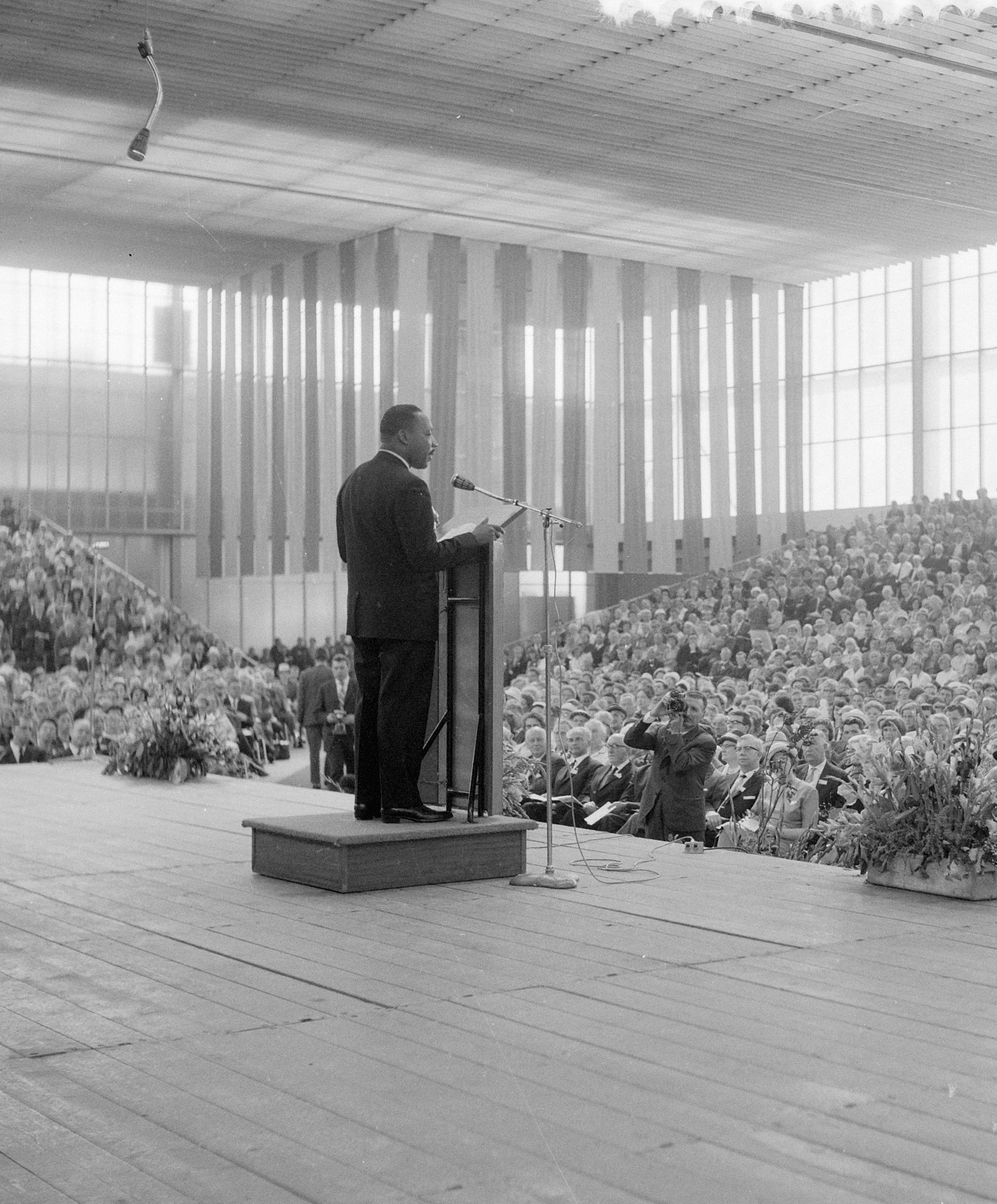
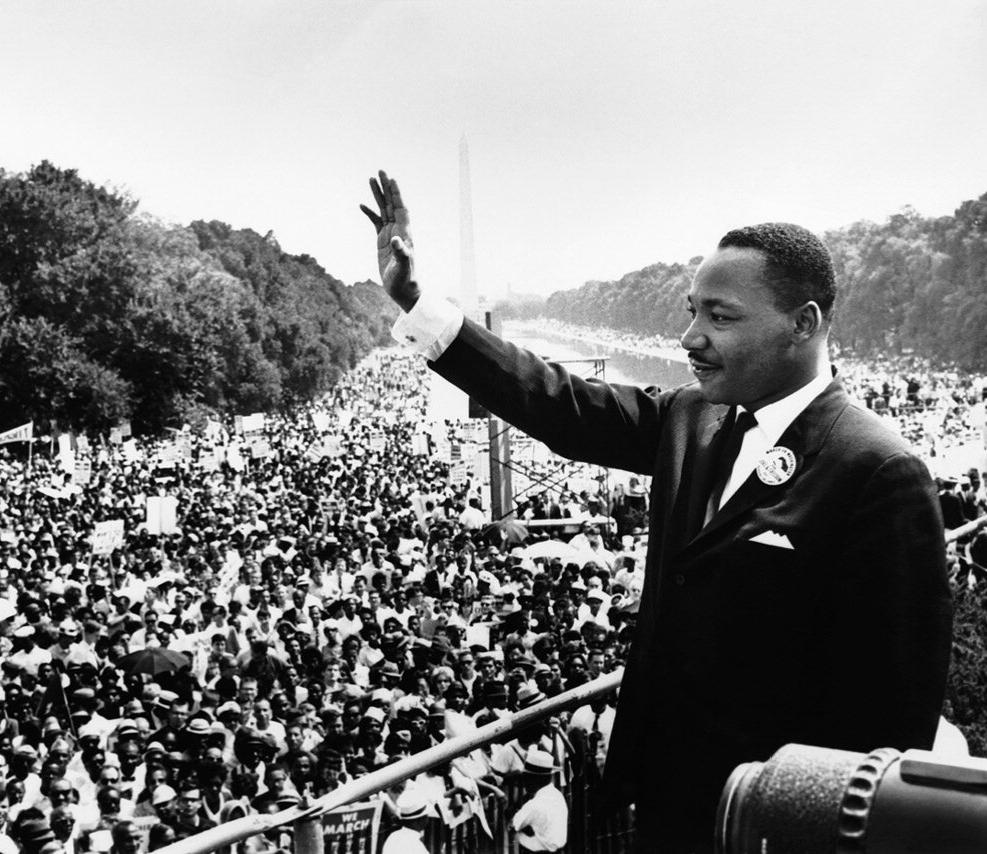

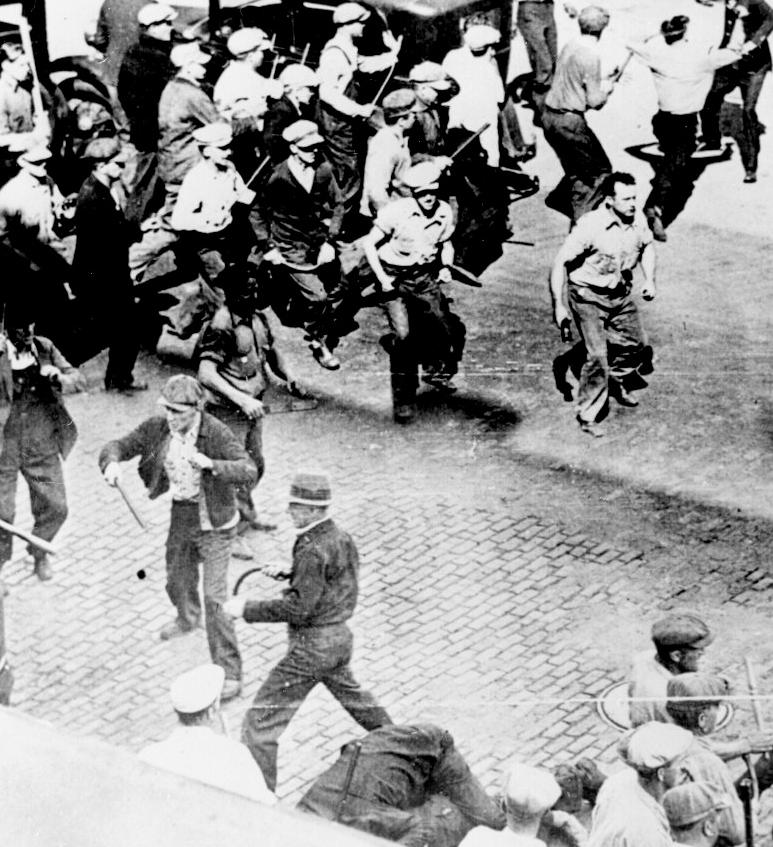
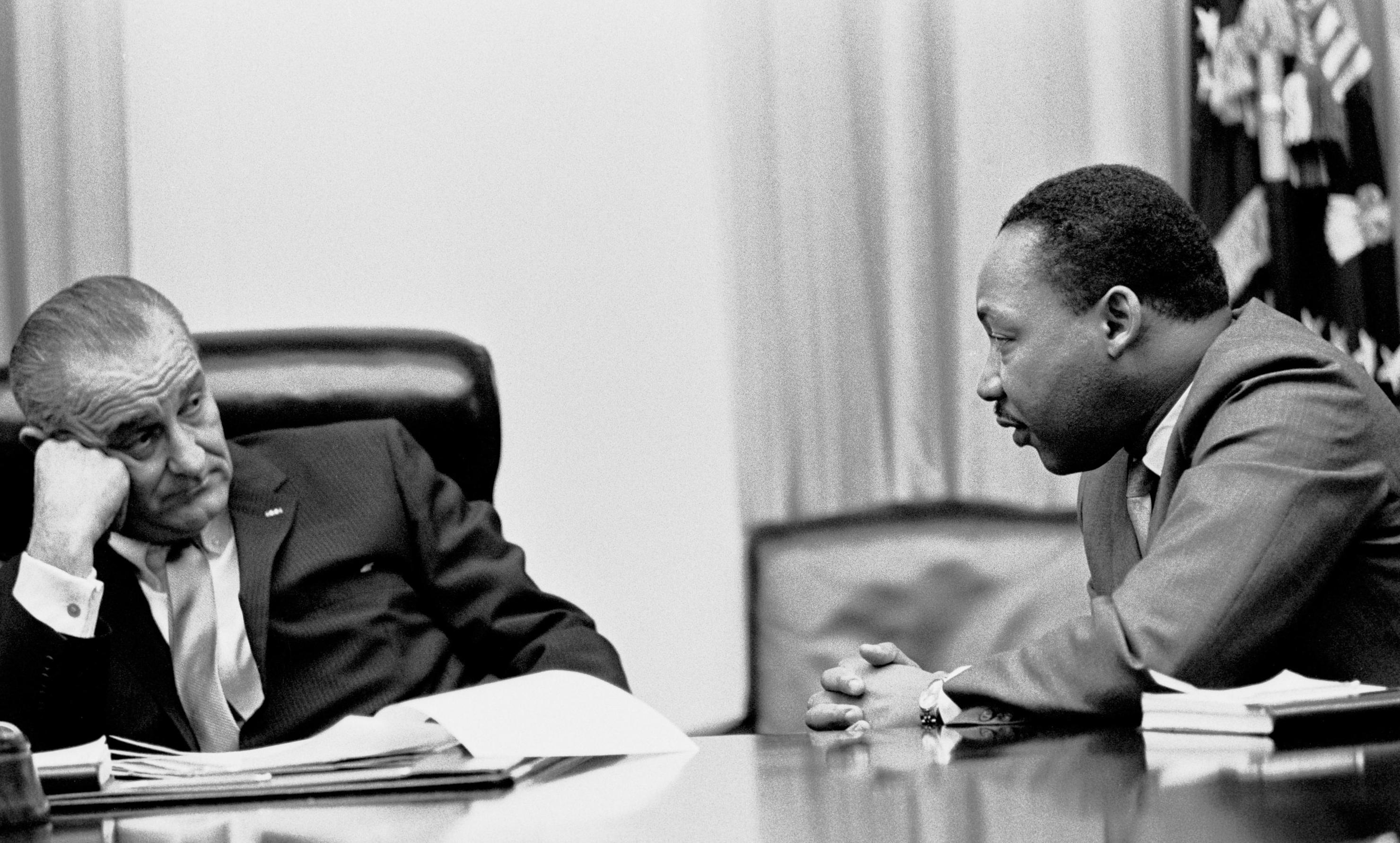
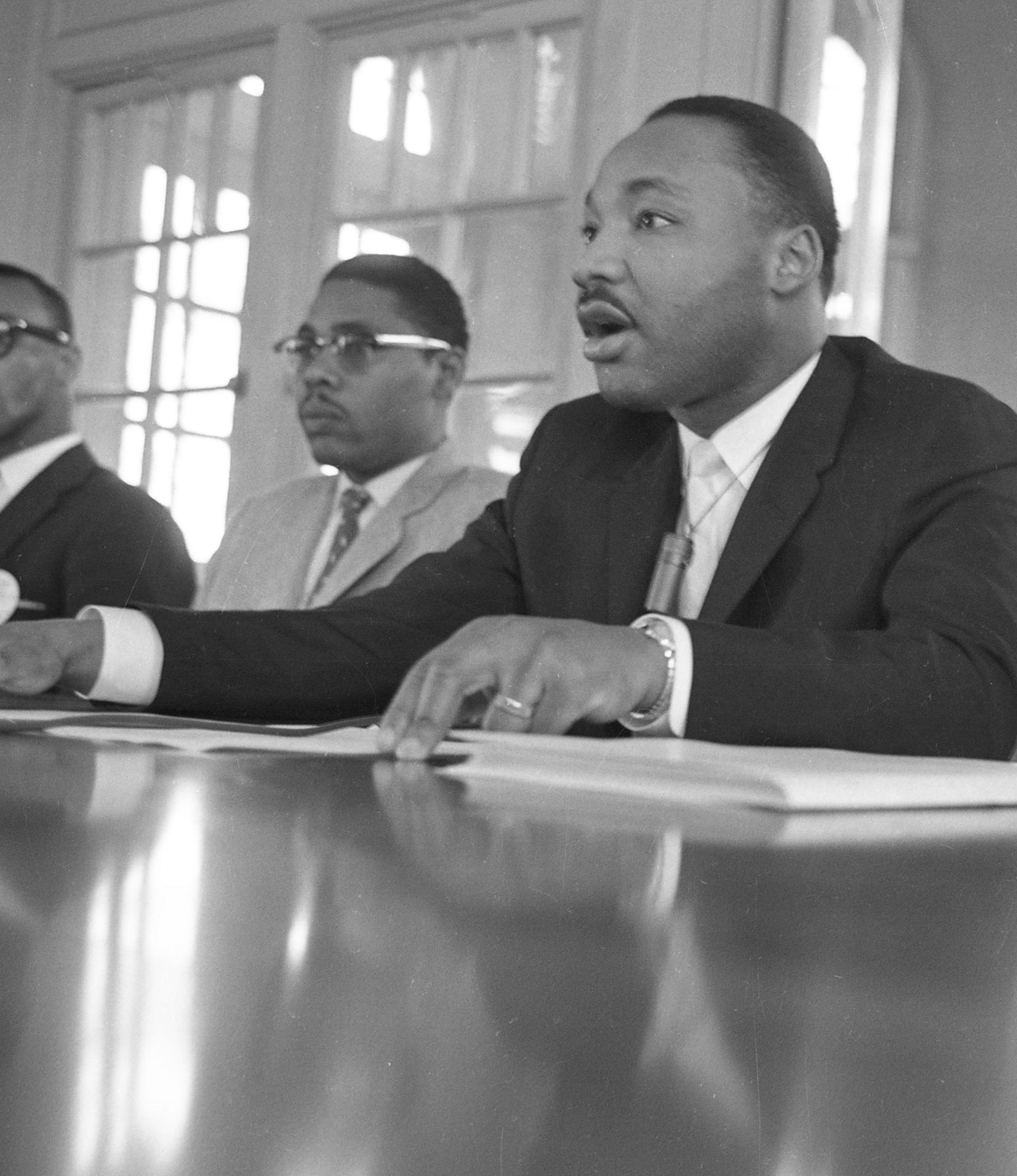
Confidential: Do not print or distribute in any form.
ONE LOVE
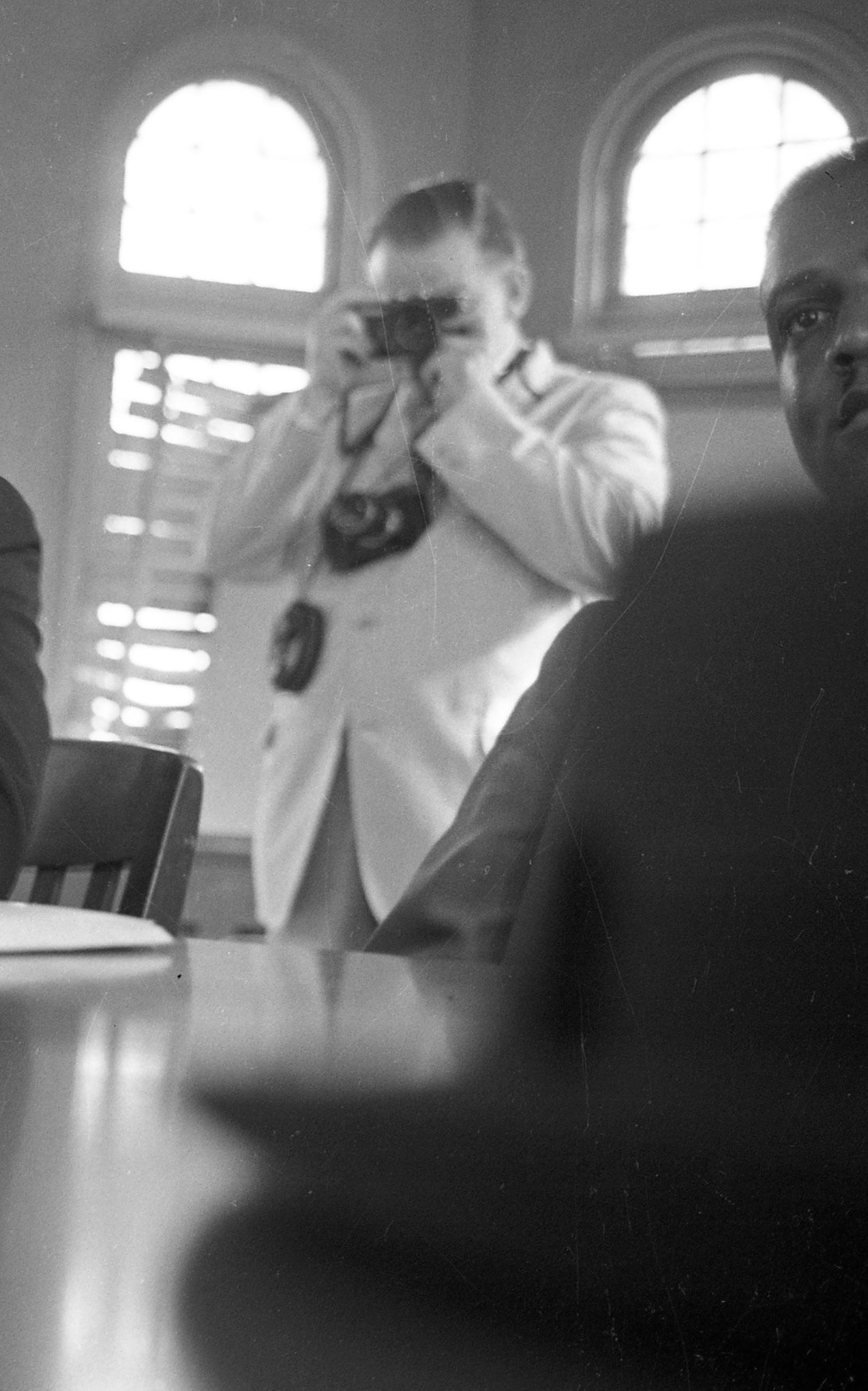
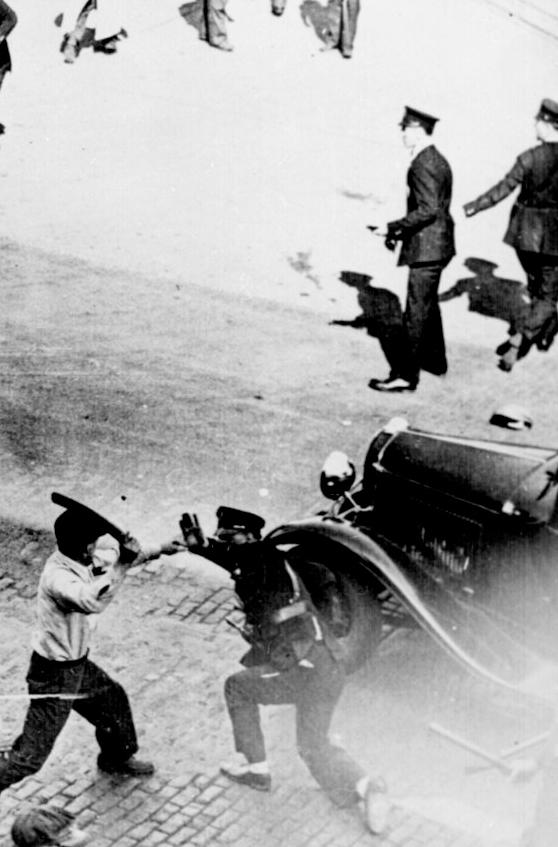
Anyone who does not love does not know God, because God is love.

SESSION
1 Confidential: Do not print or distribute in any form.
1 JOHN 4:8
Even though we face the difficulties of today and tomorrow . . . I still have a dream.
“ ” Confidential: Do not print or distribute in any form.
Dr. Martin Luther King, Jr.
On April 3, 1963, just a few months before delivering his “I Have a Dream” speech, Dr. King led a series of protests against segregation in Birmingham, Alabama. One week later, on April 12, the authorities imprisoned Dr. King and many of his fellow activists for their actions. While in jail, Dr. King learned of a public statement made by eight white clergymen that appealed to the local black population to use the courts to air their grievances and not take to the streets.
The clergyman counseled “law and order and common sense” and not the “extremist” actions that Dr. King was taking.6 In response, and while still in jail, Dr. King penned a letter in which he said, “I must admit that I was initially disappointed in being so categorized. But as I continued to think about the matter I gradually gained a bit of satisfaction from being considered an extremist. Was not Jesus an extremist in love—‘Love your enemies, bless them that curse you, pray for them that despitefully use you.’ ”7
We use the word love today to mean many things. We throw it around to express how we feel about a food or an event. We use it to describe the good feelings we have about others. Love is an ambiguous and overused word. But the type of love that Jesus calls us to have for others is active and sacrificial. It was this kind of love that enabled Dr. King and others in the Civil Rights Movement to see those who were persecuting them as children of God and love them in spite of the evil acts they were perpetrating.
In this first session, we will take a closer look the power of this kind of love and explore how those who embrace it—like Dr. King—can change their world for Christ.
CONNECT | 15 minutes
If any of your group members don’t know each other, take a few minutes to introduce yourselves. Then, to get things started, discuss one of the following questions:
• What is your primary goal or hope for participating in this study?
or —
• What is one thing you know about Dr. Martin Luther King, Jr.? What is one thing that you would like to know more about him?
| read
WELCOME
on your own
—
3 Confidential: Do not print or distribute in any form.
Watch the video, which you can access by playing the DVD or through streaming (see the instructions provided with this guide). Use the following outline to record any thoughts or concepts that stand out to you.
OUTLINE
I. Dr. Martin Luther King, Jr. described himself as an “extremist for love.”
A . Dr. King stated that he was following the example of Jesus, who was also an extremist for love.
B. He noted that an extremist for love follows Jesus’ command to “love your enemies and pray for those who persecute you” (John 5:44).
C. The critical question that we must ask ourselves: Will we be extremists for love or extremists for hate?
II. Biblical love is active and goes beyond having pleasant feelings toward others.
A. “God is love” and “whoever lives in love lives in God” (1 John 4:16).
B. God’s love does something. “Love is patient, love is kind . . . it always protects, always trusts, always hopes, always perseveres” (1 Corinthians 13:4, 7).
C. Love must be the foundation of every effort that we have to heal and restore racial relationships.
III. Love unites. It compels us to join with those who are different from us.
A. The salvation Jesus came to offer was for all people (see Ephesians 2:14; Galatians 3:26–28).
B. Tribalism divides humans into groups and builds walls. Unity tears down those walls.
C. We need to seek out opportunities to be bridge builders.
IV. Love is fully present. God broke through history to reach us.
A. Love compels us to be present when those around us are treated unjustly.
B. We build relationships with those who look, act, and think differently than us.
C. We even step away from what is safe and practice loving our enemies.
V. What do we do when we are facing hostility because of our faith?
A. There is a two-step process we can follow in such situations:
1. Meditate on the image of God in the person who is hostile to us.
2. Verbally praise what you see in the other person that reflects the image of God.
B. As we follow these steps, we are actively preventing their hostility from infecting our hearts.
WATCH | 20 minutes
4 Share the Dream Bible Study Guide Confidential: Do not print or distribute in any form.
Session One: Love
5
NOTES
Confidential: Do not print or distribute in any form.
Now discuss what you just watched by answering the following questions.
1. Based on what you know of Dr. King and his work in the Civil Rights Movement, would you describe him as an extremist for love? Why or why not? What are some of the characteristics you’d expect to find in an extremist for love?
2. How have you seen love in action in your life, church, or community? Would you refer to anyone in your community as an extremist for love? Explain.
3. How have you witnessed love show up for others and be present in your life, church, or community? How did you observe it impact others? Based on what you observed, do you agree that love should be the foundation to heal and restore racial divisions? Explain.
4. Do you see Sunday mornings as the most segregated time of the week? If you do see worship time as segregated, what might be done to make this time (or another hour in your week) less segregated? How might this help with restoring and healing racial divisions?
5. Have you ever felt as if you couldn’t love your enemies—those people who are hostile to you? How could engaging in the two-step process of seeing the image of God in them and verbally praising what you see help in those situations?
|
DISCUSS
35 minutes
6 Share the Dream Bible Study Guide Confidential: Do not print or distribute in any form.
RESPOND | 10 minutes
The following story from John 4:7–13 describes a time when Jesus “bridged the gap” and reached out to a person who had a different culture and background than his own. As you read, think of ways you can follow Jesus’ example, and then answer the questions that follow.
7 When a Samaritan woman came to draw water, Jesus said to her, “Will you give me a drink?”
8 (His disciples had gone into the town to buy food.)
9 The Samaritan woman said to him, “You are a Jew and I am a Samaritan woman. How can you ask me for a drink?” (For Jews do not associate with Samaritans.)
10 Jesus answered her, “If you knew the gift of God and who it is that asks you for a drink, you would have asked him and he would have given you living water.”
11 “Sir,” the woman said, “you have nothing to draw with and the well is deep. Where can you get this living water? 12 Are you greater than our father Jacob, who gave us the well and drank from it himself, as did also his sons and his livestock?”
13 Jesus answered, “Everyone who drinks this water will be thirsty again, 14 but whoever drinks the water I give them will never thirst. Indeed, the water I give them will become in them a spring of water welling up to eternal life.”
John notes that “Jews do not associate with Samaritans” (verse 9). What does this reveal about Jesus’ intentions when he initiated a conversation with the woman?
John later writes that “many of the Samaritans from that town believed in [Jesus] because of the woman’s testimony” (verse 39). What does this say about the impact of this conversation? What are some ways that you can “bridge the gap” with those who are different from you?
7
Confidential: Do not print or distribute in any form.
Session One: Love
Confidential: Do not print or distribute in any form.
Share the Dream Bible Study Guide
PRAY | 10 minutes
Praying for one another is one of the most important things you can do as a community. So make this time more than just a “closing prayer” to end your group experience by vulnerably sharing your prayers and how you are asking God to come through for you. Use the space below to write down any requests mentioned so you can pray for them in the week ahead.
Name Request ������������������������������������������������������������������� ������������������������������������������������������������������� ������������������������������������������������������������������� ������������������������������������������������������������������� ������������������������������������������������������������������� ������������������������������������������������������������������� ������������������������������������������������������������������� ������������������������������������������������������������������� ������������������������������������������������������������������� ������������������������������������������������������������������� ������������������������������������������������������������������� ������������������������������������������������������������������� ������������������������������������������������������������������� �������������������������������������������������������������������
8
PERSONAL STUDY
In this study, you are looking at some of the biblical principles that Dr. King, embraced that enabled him to speak out and take action against the injustices he witnessed during the Civil Rights Movement. In these weekly personal studies, you will take a deeper dive into exploring these principles, beginning with love, the focus of this session. The goal of these personal studies is to help you examine what the Bible has to say and how to apply those principles from God’s Word to your life. As you work through each of these exercises, be sure to write down your responses to the questions, as you will be given a few minutes to share your insights at the start of the next session if you are doing this study with others.
SESSION
ONE
9 Confidential: Do not print or distribute in any form.
WHAT IS LOVE?
First Corinthians 13, known as the “love chapter,” is a popular passage of Scripture that is often quoted at weddings and in sermons on love. But it can be surprising (and helpful) to review the descriptions of love in this chapter and ask yourself if you exhibit these same qualities. Those who consider themselves “extremists of love” like Jesus and Dr. King—or those who aspire to be extremists of love—should examine whether they exhibit the qualities of patience, kindness, humility, forgiveness, trust, hope, and perseverance that the apostle Paul describes.
When you put these descriptions of love into action in your life, you can better understand how Dr. King was able to truly forgive those who were hostile to him and even those who were violently threatening his life. You can see how the “drum major of justice” was able to keep pursuing what he felt was his God-given mission of unifying racial groups in spite of many attacks against him. Likewise, when you consider Jesus’ actions—particularly how he was able to love those who were trying to destroy him—you can begin to understand what a powerful and transforming force love can be in our world today.
As you take steps toward unity and being fully present in relationships with those who are different from you, consider these models of Jesus, Dr. King, and Paul’s words in 1 Corinthians 13 to evaluate your commitment to truly loving others. May we all become extremists of love as we pursue deeper relationships with God and our brothers and sisters.
4 Love is patient, love is kind. It does not envy, it does not boast, it is not proud.
5 It does not dishonor others, it is not self-seeking, it is not easily angered, it keeps no record of wrongs. 6 Love does not delight in evil but rejoices with the truth. 7 It always protects, always trusts, always hopes, always perseveres (1 Corinthians 13:4–7).
1. Write each description of love listed in this passage. Next to each word, write your own definition. If possible, think of an example of a time you either showed this kind of love or were shown it through the description. (For example, a time
STUDY
1
10 Confidential: Do not print or distribute in any form.
when you showed love through being patient or a time when someone showed you love by being kind.)
2. Which words or phrases that describe love in this passage are particularly challenging to you in dealing with racial restoration? What other examples from Scripture can you use to help you meet the challenge of loving in this way for racial reconciliation?
3. What does it mean that “love does not delight in evil but rejoices with the truth” (verse 6)? In what ways have you rejected evil and stood up for truth as it relates to people who are different than you are or who think differently than you do?
4. What does it mean that love “always protects, always trusts, always hopes, always perseveres” (verse 7)? What examples have you observed of people exemplifying these characteristics?
5. What does it mean that love “keeps no record of wrongs” (verse 5)? Why is this important in building bridges with those who are different than you? What can you do to actively release the record of wrongs people have done against you?
11 Session One: Love Confidential: Do not print or distribute in any form.
The Highest Good
Always be sure that you struggle with Christian methods and Christian weapons. Never succumb to the temptation of becoming bitter. As you press on for justice, be sure to move with dignity and discipline, using only the weapon of love. Let no man pull you so low as to hate him. Always avoid violence. If you succumb to the temptation of using violence in your struggle, unborn generations will be the recipients of a long and desolate night of bitterness, and your chief legacy to the future will be an endless reign of meaningless chaos. In your struggle for justice, let your oppressor know that you are not attempting to defeat or humiliate him, or even to pay him back for injustices that he has heaped upon you. Let him know that you are merely seeking justice for him as well as yourself. Let him know that the festering sore of segregation debilitates the white man as well as the Negro. With this attitude you will be able to keep your struggle on high Christian standards. . . .
I still believe that love is the most durable power in the world. Over the centuries men have sought to discover the highest good. This has been the chief quest of ethical philosophy. This was one of the big questions of Greek philosophics. The Epicureans and the Stoics sought to answer it; Plato and Aristotle sought to answer it. What is the summum bonum of life? I think I have discovered the highest good. It is love. This principle stands at the center of the cosmos. As John says, “God is love.” He who loves is a participant in the being of God.
Dr. Martin Luther King, Jr. from a sermon given on november 6, 1956 in montgomery, alabama 8
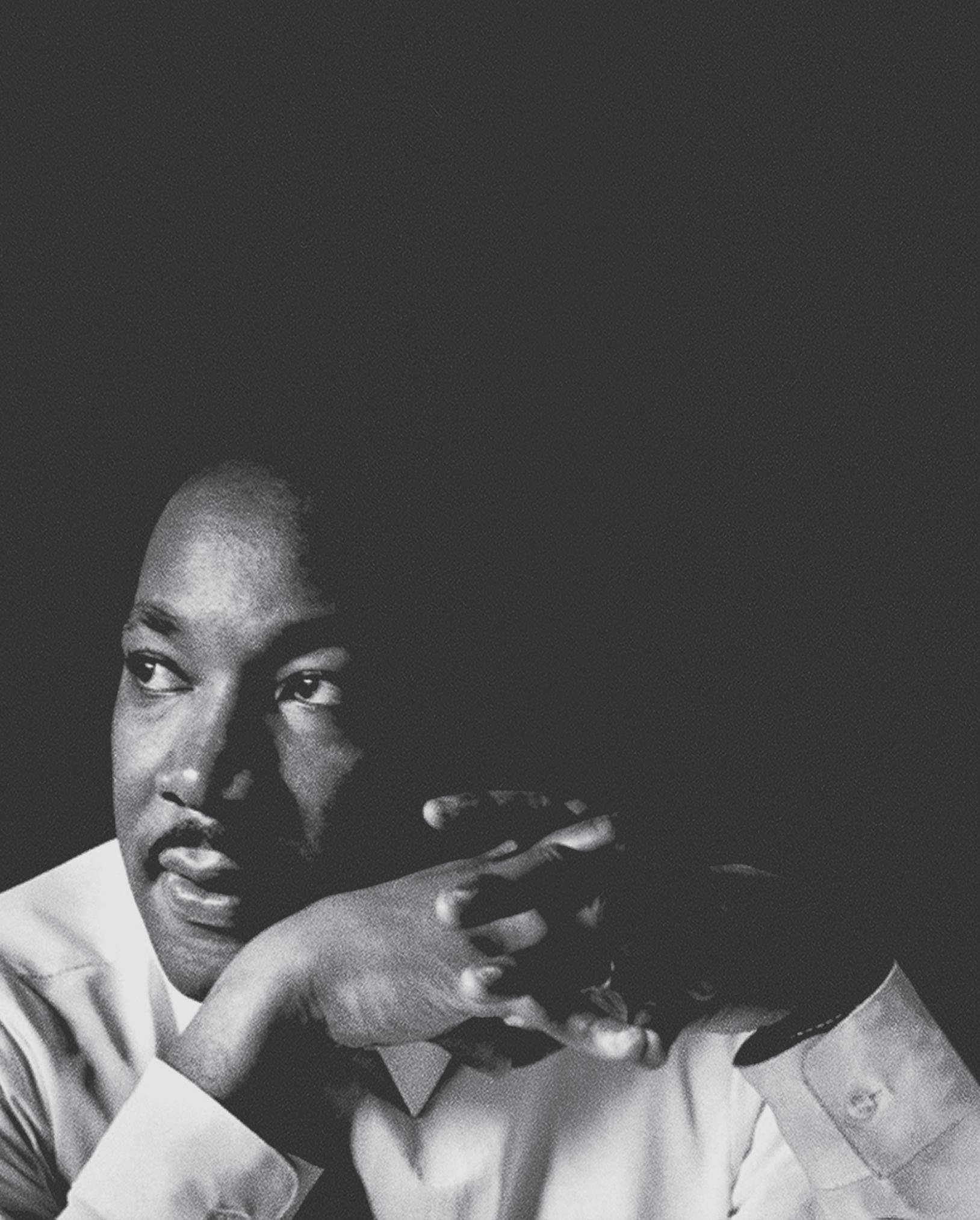
Confidential: Do not print or distribute in any form.
CALLED TO LOVE
As believers following Jesus’ example to be extremists for love, we cannot hear enough the greatest love story of all. God’s love for us—exemplified primarily through the gift and sacrifice of Jesus Christ—is the ultimate love story for humanity. It shows how, at just the right time, God met our biggest need (see Romans 5:6). He sent a Savior to rescue his people from the wages of sin and eternal death (see Romans 6:23). Because of this selfless act of pure love, every man and woman who believes in Jesus is given eternal life.
In this study, we will review the love story of Jesus Christ to garner more fuel to commit to living as extremists for love. By reviewing and reflecting on the gift of Jesus done in love for us, we can reinvigorate our mission to love one another as God as loved us. We can renew our commitment and stir up our passion to love fully regardless of our differences.
9 “As the Father has loved me, so have I loved you. Now remain in my love. 10 If you keep my commands, you will remain in my love, just as I have kept my Father’s commands and remain in his love. 11 I have told you this so that my joy may be in you and that your joy may be complete. 12 My command is this: Love each other as I have loved you. 13 Greater love has no one than this: to lay down one’s life for one’s friends” (John 15:9–13).
1. Why is laying down one’s life the greatest act of love that one can offer? Why do you think Jesus would mention laying down one’s life for a friend in this passage? What does that say about how he might expect us to love each other?
2. 1 Peter 4:8 says, “love covers over a multitude of sins.” How can love “cover” sin or wrongdoing? What challenges do you have with this? How can recalling
STUDY 2
13 Confidential: Do not print or distribute in any form.
God’s love for you through the sacrifice of Jesus help you show forgiveness when others wrong you?
7 Dear friends, let us love one another, for love comes from God. Everyone who loves has been born of God and knows God. 8 Whoever does not love does not know God, because God is love. 9 This is how God showed his love among us: He sent his one and only Son into the world that we might live through him. 10 This is love: not that we loved God, but that he loved us and sent his Son as an atoning sacrifice for our sins. 11 Dear friends, since God so loved us, we also ought to love one another. . . .
19 We love because he first loved us. 20 Whoever claims to love God yet hates a brother or sister is a liar. For whoever does not love their brother and sister, whom they have seen, cannot love God, whom they have not seen.
21 And he has given us this command: Anyone who loves God must also love their brother and sister (1 John 4:7–11,19–21).
3. What does John say is the source of all love (see verse 7)? How did God actively demonstrate the love that he had for each of us (see verse 9)?
4. What does John call the person who says he loves God but hates a brother or sister (see verse 20)? Why do you think this is so? How does Dr. King’s message align with these words?
5. God is love, and God’s love is active. Love is not a mere feeling; love does things. In light of injustice, discrimination, and abuse, love acts. How have you put love into action in the areas of discrimination, abuse, or injustice? How might you putt love into action in these areas in the future?
14 Share the Dream Bible Study Guide Confidential: Do not print or distribute in any form.
LOVE YOUR ENEMIES
“Don’t get your weapons. He who lives by the sword will perish by the sword. Remember that is what God said. We are not advocating violence. We want to love our enemies. Love them and let them know you love them.” 9 These are the words King spoke to the angry crowd after his home was attacked in 1956. During this attack, his wife and children narrowly avoided death. The crowd was ready to seek revenge. Yet Dr. King’s directive was to “love our enemies.”
Jesus taught about loving one’s enemies through example as well as in his parables. One such account is the parable of the unmerciful servant found in Matthew 18:23–35:
23 “Therefore, the kingdom of heaven is like a king who wanted to settle accounts with his servants. 24 As he began the settlement, a man who owed him ten thousand bags of gold was brought to him. 25 Since he was not able to pay, the master ordered that he and his wife and his children and all that he had be sold to repay the debt.”
26 “At this the servant fell on his knees before him. ‘Be patient with me,’ he begged, ‘and I will pay back everything.’ 27 The servant’s master took pity on him, canceled the debt and let him go.
28 “But when that servant went out, he found one of his fellow servants who owed him a hundred silver coins. He grabbed him and began to choke him. ‘Pay back what you owe me!’ he demanded.
29 “His fellow servant fell to his knees and begged him, ‘Be patient with me, and I will pay it back.’
30 “But he refused. Instead, he went off and had the man thrown into prison until he could pay the debt. 31 When the other servants saw what had happened, they were outraged and went and told their master everything that had happened.
32 “Then the master called the servant in. ‘You wicked servant,’ he said, ‘I canceled all that debt of yours because you begged me to. 33 Shouldn’t you have had mercy on your fellow servant just as I had on you?’ 34 In anger his master handed him over to the jailers to be tortured, until he should pay back all he owed.
STUDY 3
15 Confidential: Do not print or distribute in any form.
The Power of Love
Now on the question of love or the love ethic, I think this is so important because hate is injurious to the hater as well as the hated. Many of the psychiatrists are telling us now that many of the strange things that happen in the subconscious and many of the inner conflicts are rooted in hate, and so they are now saying “love or perish.” . . . It is necessary to follow the technique of nonviolence as the most potent weapon available to us, but it is necessary also to follow the love ethic which becomes a force of personality integration. . . .
I’m certainly not speaking of an affectionate response. I think it is really nonsense to urge oppressed peoples to love their oppressors in an affectionate sense. And l often call on the Greek language to aid me at this point because there are three words in the Greek for love. One is eros, which is sort of an aesthetic or a romantic love. Another is philia, which is sort of an intimate affection between personal friends; this is friendship, it is a reciprocal love and on this level, you love those people that you like. And then the Greek language comes out with the word agape, which is understanding, creative, redemptive good will for all men. . . .
And you come to the point of being able to love the person that does an evil deed in the sense of understanding and you can hate the deed that the person does. . . . I don’t think of love, as in this context, as emotional bosh. I don’t think of it as a weak force, but I think of love as something strong and that organizes itself into powerful direct action.

Martin
from a sermon given on November 6, 1956 in montgomery, alabama 10
Confidential: Do not print or distribute in any form.
Dr.
Luther King, Jr.
Confidential: Do not print or distribute in any form.
Session One: Love
“This is how my heavenly Father will treat each of you unless you forgive your brother or sister from your heart.”
Jesus’ words remind us of the cyclical relationship of forgiveness. Reading this parable as a story, we see it’s about a king forgiving his servant, and then that same servant turning around and not forgiving someone else. But when read from the third-person—the outsider looking into this story—it should cause us to wonder about that unmerciful person: How could he not let that go? He had just received mercy from the man he owed. He was released from a big debt—and he couldn’t do the same for someone who owed him so much less?
The challenge for us, the third-party observers, comes when Jesus explains the parable. Just as we expect the servant to return the favor and forgive the one who owes him a smaller debt than he’s been forgiven, so God expects us to do the same. We have been forgiven of our sin through Christ’s sacrifice—a cancellation of a great debt. Therefore, we are called to release others from the debts they owe us—because regardless of how painful they may be, they don’t compare to the debt God has wiped out for us. We are called to be merciful servants. Even when it is tough and challenging, recalling the debt that has been canceled for us can push us to work toward forgiveness. It’s a cycle we need to keep going.
1. Jesus begins his parable by stating that “the kingdom of heaven is like a king who wanted to settle accounts with his servants” (verse 23). What do you think Jesus was saying about how things operate in God’s kingdom and for followers of Christ through this parable?
2. Jesus states in verse 35, “This is how my heavenly Father will treat each of you unless you forgive your brother or sister from your heart.” How do these words from Jesus encourage you to work on forgiving those who have wronged you?
35
17
3. What role do you think forgiveness plays in racial reconciliation? Do you think forgiveness has a different role when it is personal versus when it is collective? Explain your response.
4. Jesus told this parable in response to a question from his disciple Peter: “Lord, how many times shall I forgive?” (verse 21). Peter wondered if forgiving the brother or sister who sinned against him “up to seven times” was enough. Jesus answered, “I tell you, not seven times, but seventy-seven times” (verse 22). Given the parable that followed, what do you think Jesus was trying to tell Peter? How does that message apply to us today?
5. What are some ways you can overcome the challenge to hold on to wrongdoings and not forgive your brother or sister? What does forgiveness look like to you even when you have to create boundaries for those who have repeatedly hurt you?
18 Share the Dream Bible Study Guide Confidential: Do not print or distribute in any form.
CONNECT & CATCH UP
Take time today to connect with a fellow group member and discuss the key insights from this session. Use any of the following prompts to help guide your discussion.
What are some ways that you want to mature in your relationship with God?
What is something you uncovered this week that made you feel convicted or that challenged you?
What do you want to work in this study on as it relates to showing more love through your actions?
What else do you hope to gain as you go through this study?
Use this time to go back and complete any of the study and reflection questions from previous days that you weren’t able to finish. Make a note below of any revelations you’ve had and reflect on any growth or personal insights you’ve gained.
19 Confidential: Do not print or distribute in any form.
ENDNOTES
1. Drew Hansen, The Dream: Martin Luther King Jr. and the Speech that Inspired a Nation (New York: Harper Collins, 2003), 177.
2. Taylor Branch, Parting the Waters: America in the King Years, 1954–1963 (New York: Simon & Schuster, 2006).
3. “I Have a Dream,” Wikipedia, https://en.wikipedia.org/wiki/I Have a Dream#cite ref-7.
4. Jon Meacham, “One Man.” Time, August 26, 2013, 26.
5. Dr. Martin Luther King, Jr., “I See the Promised Land,” sermon delivered at the Bishop Charles Mason Temple in Memphis, Tennessee, on April 3, 1968. Taken from James M. Washington, editor, A Testament of Hope: The Essential Writings and Speeches of Martin Luther King Jr. (San Francisco, CA: HarperOne, 1986), 284–285.
6. Lucas Morel and Constance Murray, “Martin Luther King Publishes His Letter from a Birmingham Jail,” EDSITEment, National Endowment for the Humanities, November 13, 2009, https://edsitement.neh.gov/this-day/martin-luther-king-publishes-his-letter-birmingham jail#:~:text=King%20wrote%20his%20%22Letter%20 from,streets%20to%20secure%20civil%20rights.
7. Dr. Martin Luther King, Jr., “Letters from a Birmingham Jail,” open letter to eight clergymen, written April 16, 1963, from a jail in Birmingham, Alabama. Taken from Washington, A Testament of Hope, 297.
8. Dr. Martin Luther King, Jr., “The Most Durable Power,” sermon delivered in Montgomery, Alabama, on November 6, 1956. Taken from Washington, A Testament of Hope, 10–11.
9. Bishop Todd Hunter, “2’s Day: Jesus and MLK,” The Center for Formation Justice and Peace, https://centerfjp. org/article-posts/2s-day-jesus-and-mlk/.
10. Dr. Martin Luther King, Jr., “The Most Durable Power,” sermon delivered in Montgomery, Alabama, on November 6, 1956. Taken from Washington, A Testament of Hope, 10–11.
20 Confidential: Do not print or distribute in any form.













